Interesting Statistics Regarding Diarrhea
- Diarrhea affects 5 percent of the U.S. population at any given time.
- Researchers estimate that about 179 million cases of acute diarrhea occur in the United States each year.1
- The Anti-Diarrheal Drugs market size is estimated to reach $186 million by 2027, growing at a CAGR of 4.17% during the forecast period 2022-2027.2
- Diarrhea kills 2,195 children every day worldwide—more than AIDS, malaria, and measles combined.3
- Diarrheal diseases account for 1 in 9 child deaths worldwide, making diarrhea the second leading cause of death among children under the age of 5.
Definition of Diarrhea
 Diarrhea is defined as the frequent passage of watery, loose stools, accompanied by an excessive loss of fluid and electrolytes. Another standard definition of diarrhea is passing more than three liquid bowel movements daily, or more than one liter of stool from an ileostomy or colostomy per day. Diarrhea occurs because the contents of the gastrointestinal tract are moving too rapidly, causing less fluid and nutrients to be absorbed.7
Diarrhea is defined as the frequent passage of watery, loose stools, accompanied by an excessive loss of fluid and electrolytes. Another standard definition of diarrhea is passing more than three liquid bowel movements daily, or more than one liter of stool from an ileostomy or colostomy per day. Diarrhea occurs because the contents of the gastrointestinal tract are moving too rapidly, causing less fluid and nutrients to be absorbed.7
If a person frequently passes stools but they are of a normal consistency, this is not diarrhea. Similarly, breastfed babies often pass loose, sticky stools. This is normal.
Causes of Diarrhea
Acute and persistent diarrhea may have causes that are different from those of chronic diarrhea. In many cases, doctors do not find the cause of diarrhea. Most diarrhea goes away on its own within 4 days, and finding the cause is not necessary.4
Acute and Persistent Diarrhea
The most common causes of acute and persistent diarrhea are infections, travelers’ diarrhea, and side effects of medicines.
- Infections - Three types of infections that cause diarrhea include:
- Viral infections. Many viruses cause diarrhea, including norovirus and rotavirus. Viral gastroenteritis is a common cause of acute diarrhea.
- Bacterial infections. Several types of bacteria can enter your body through contaminated food or water and cause diarrhea. Common bacteria that cause diarrhea include Campylobacter, Escherichia coli (E. coli), Salmonella, and Shigella.
- Parasitic infections. Parasites can enter your body through food or water and settle in your digestive tract. Parasites that cause diarrhea include Cryptosporidium enteritis, Entamoeba histolytica, and Giardia lamblia.
- Infections in the digestive tract that spread through foods or drinks are called foodborne illnesses.
Infections lasting more than 2 weeks and less than 4 weeks can cause persistent diarrhea.
- Travelers’ Diarrhea caused by eating food or drinking water contaminated with bacteria, viruses, or parasites. Travelers’ diarrhea is most often acute. However, some parasites cause diarrhea that lasts longer. Travelers’ diarrhea can be a problem for people traveling to developing countries.
- Side Effects of Medicines Many medicines may cause diarrhea. Medicines that may cause diarrhea include antibiotics, antacids containing magnesium, and medicines used to treat cancer.
Chronic Diarrhea
Some infections, food allergies and intolerances, digestive tract problems, abdominal surgery, and long-term use of medicines can cause chronic diarrhea.
- Infections Some infections from bacteria and parasites that cause diarrhea do not go away quickly without treatment. Also, after an infection, people may have problems digesting carbohydrates such as lactose or proteins in foods such as cow’s milk, milk products, or soy. Problems digesting carbohydrates or proteins can prolong diarrhea.
 Food Allergies and Intolerances Allergies to foods such as cow’s milk, soy, cereal grains, eggs, and seafood may cause chronic diarrhea.
Food Allergies and Intolerances Allergies to foods such as cow’s milk, soy, cereal grains, eggs, and seafood may cause chronic diarrhea.
- Lactose Intolerance a common condition that may cause diarrhea after eating foods or drinking liquids that contain milk or milk products.
- Fructose Intolerance a condition that may cause diarrhea after eating foods or drinking liquids that contain fructose, a sugar found in fruits, fruit juices, and honey. Fructose is added to many foods and soft drinks as a sweetener called high-fructose corn syrup.
- Sugar Alcohols such as sorbitol, mannitol, and xylitol may cause diarrhea in some people. Sugar-free candies and gum often include these sugar alcohols.
- Digestive (Gastrointestinal) Tract Problems that may cause chronic diarrhea include:
- Celiac disease
- Crohn’s disease
- Impaired nutrient absorption
- Irritable bowel syndrome and other functional gastrointestinal (GI) disorders
- Small intestinal bacterial overgrowth
- Ulcerative colitis
- Abdominal surgery - you may develop chronic diarrhea after abdominal surgery. Abdominal surgery is an operation on the appendix, gallbladder, large intestine, liver, pancreas, small intestine, spleen, or stomach.
- Endocrine-Related Causes: Sometimes, hormonal factors cause diarrhea. This is the case in Addison’s disease and carcinoid tumors.
- Long-Term Use of Medicines Medicines that must be taken for a long time may cause chronic diarrhea, i.e. NSAIDS (Non-steroidal anti-inflammatory drugs), PPI’s (proton pump inhibitors), certain anti-depression medicines. Some medicines, such as laxatives and antibiotics, can change the normal gut flora and increase your chances of infection with Clostridioides difficile, a bacterium that can cause chronic diarrhea.
- Cancer-Related Causes: Neoplastic diarrhea is associated with a number of gut cancers.
Symptoms of Diarrhea
The main symptom of diarrhea is passing loose, watery stools three or more times a day. People with diarrhea may also have one or more of the following symptoms:5
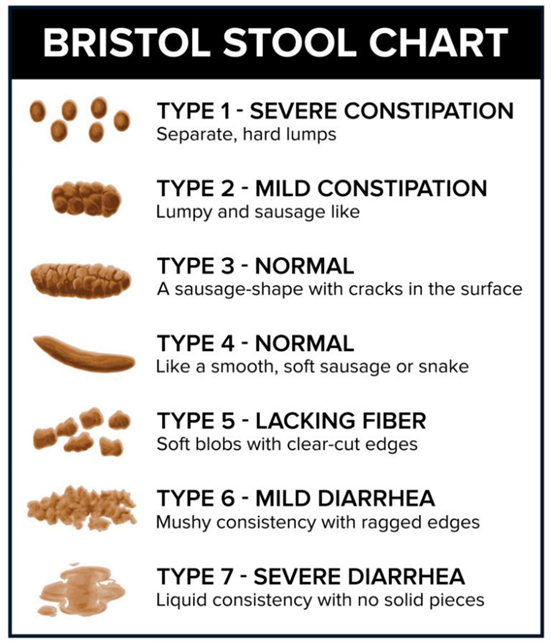
- An urgent need to use the bathroom
- Cramping
- Loss of control of bowel movements
- Nausea
- Pain in the abdomen
- Bloating
People with diarrhea caused by some infections may also have one or more of the following symptoms:6
- Bloody or puss in the stools
- Fever and chills
- Body aches
- Light-headedness and dizziness
- Vomiting
- Weight loss
- Pain in the abdomen
Dehydration and malabsorption can be serious complications of diarrhea. Their symptoms in adults, infants, toddlers, and young children are as follows:
Dehydration Symptoms in Adults:
- Thirst
- Urinating less than usual
- Feeling tired
- Dark-colored urine
- Dry mouth
- Decreased skin turgor, meaning that when your skin is pinched and released, the skin does not flatten back to normal right away
- Sunken eyes or cheeks
- Light-headedness or fainting
Dehydration Symptoms in Infants, Toddlers, and Young Children:
- Thirst
- Urinating less than usual, or no wet diapers for 3 hours or more
- Lack of energy
- Dry mouth
- No tears when crying
- Decreased skin turgor
- Sunken eyes, cheeks, or soft spot in the skull
Symptoms of malabsorption in adults and children include:
- Bloating
- Changes in appetite
- Gas
- Loose, greasy, foul-smelling bowel movements
- Weight loss / Not being able to gain weight (children)
How Diarrhea is Diagnosed
Doctors do not typically need to find a cause of acute diarrhea. If your diarrhea lasts longer than 4 days or you have symptoms such as fever or bloody stools, your doctor may need to find the cause. Your doctor may use information from your medical and family history, a physical exam, or tests to find the cause of your diarrhea.
Medical and family history -your doctor will ask for information about your symptoms, such as:
- how long you have had diarrhea
- how much stool have you passed
- how often you have diarrhea
- how your stool looks, such as color or consistency
- whether you have other symptoms along with diarrhea? Any blood in the stool? Any abdominal pain? Any fevers?
Your doctor will ask about the foods you eat and the beverages you drink. If your doctor suspects you have a food allergy or intolerance, he or she may recommend that you change what you eat to see if your symptoms improve. Your doctor will also ask about:
- current and past medical conditions
- prescription and over-the-counter medicines
- recent contact with other people who are sick
- recent travel to developing countries or other foreign travel
Your doctor may ask whether anyone in your family has a history of conditions that cause chronic diarrhea, such as celiac disease, Crohn’s disease, irritable bowel syndrome, lactose intolerance, and ulcerative colitis.
 Physical exam – during your physical exam your doctor may:
Physical exam – during your physical exam your doctor may:
- check your blood pressure and pulse for signs of dehydration
- examine your body for signs of fever
- use a stethoscope to listen to sounds in your abdomen
- tap on your abdomen to check for tenderness or pain
Sometimes, doctors perform a digital rectal exam. Your doctor will have you bend over a table or lie on your side while holding your knees close to your chest. After putting on a glove, the doctor will slide a lubricated finger into your anus to check for blood in your stool.
Your doctor may use the following tests to help find the cause of your diarrhea.
- A full blood count: Anemia may suggest malnutrition, bleeding ulcerations, or an inflammatory bowel condition.
- Liver function tests: These will include testing albumin levels.
- Tests for malabsorptionThese will check the absorption of calcium, vitamin B-12, and folate. They will also assess iron status and thyroid function.
- Erythrocyte sedimentation rate and C-reactive protein: Raised levels may indicate IBD.
- Tests for antibodies: These may detect celiac disease.
- Stool tests can identify parasites, bacteria, and a few viruses in stool cultures. Stool tests can also reveal microscopic blood, white blood cells, and other clues for diagnosis.
- Hydrogen breath testis used to diagnose lactose intolerance by measuring the amount of hydrogen in your breath. Normally, little hydrogen is detectable in your breath. With lactose intolerance, undigested lactose produces high levels of hydrogen in your breath. For this test, you will drink a beverage that contains a known amount of lactose. You will then breathe into a balloon-type container that measures your breath hydrogen level. If the hydrogen level is high, your doctor will diagnose lactose intolerance.
- Fasting teststo find out if a food intolerance or allergy is causing your diarrhea, your doctor may ask you to avoid foods with lactose, carbohydrates, wheat, or other ingredients to see whether your diarrhea responds to a change in diet.
- Endoscopy Your doctor may use endoscopy to look inside your body to help find the cause of your diarrhea. Endoscopic procedures include:
 Colonoscopy. Colonoscopy is a procedure that allows the doctor to view the entire length of the large intestine, and can often help identify abnormal growths, inflamed tissue, ulcers, and bleeding. It involves inserting a colonoscope, a long, flexible, lighted tube, in through the rectum up through the entire colon. The colonoscope allows the doctor to see the lining of the colon, remove tissue for further examination, and possibly treat some problems that are discovered.
Colonoscopy. Colonoscopy is a procedure that allows the doctor to view the entire length of the large intestine, and can often help identify abnormal growths, inflamed tissue, ulcers, and bleeding. It involves inserting a colonoscope, a long, flexible, lighted tube, in through the rectum up through the entire colon. The colonoscope allows the doctor to see the lining of the colon, remove tissue for further examination, and possibly treat some problems that are discovered.- Sigmoidoscopy. A sigmoidoscopy is a diagnostic procedure that allows the doctor to examine the inside of a portion of the large intestine, and is helpful in identifying the causes of diarrhea, abdominal pain, constipation, abnormal growths, and bleeding. A short, flexible, lighted tube, called a sigmoidoscope, is inserted into the intestine through the rectum. This is a shorter exam than the colonoscopy and does not go through the entire colon. The scope blows air into the intestine to inflate it and make viewing the inside easier.
- Upper Endoscopy. Your doctor inserts a thin, flexible tube equipped with a light and camera (endoscope) down your throat. The endoscope helps your provider see inside your esophagus, stomach, and first part of the small intestine (called the duodenum). An endoscopy may detect inflammation, ulcers, abnormal growths, or other injury to the esophagus, stomach and first part of the small intestine.
- An endoscopy can also be used to collect a sample of tissue (biopsy) to be tested to make certain diagnoses, i.e. Celiac disease, Helicobacter pylori infection.
Types of Diarrhea
Diarrhea is classified into four categories: osmotic, secretory, exudative, or rapid intestinal transit diarrhea.
- Osmotic diarrhea is caused by the presence of solutes in the gastrointestinal tract that are poorly absorbed and produce an osmotic effect. The osmotic effect is the movement of water from low solute concentration to high solute concentration. The causes of osmotic diarrhea may be lactose intolerance, fat malabsorption, dumping syndrome after gastric surgery, or certain medications (i.e. hypertonic or sorbitol-containing liquid medications).
- Secretory diarrhea occurs when there is an over secretion of water and salts in the intestine, which is caused by bacterial toxins (Clostridium difficile, E. coli, etc.), caffeine, viruses, or increased bile acids following an ileal resection.
- Exudative diarrhea is associated with damage to the intestinal mucosa, leading to the release or oozing of mucus, blood, and plasma proteins from cells as result of inflammation or injury. This increases the fluid content of feces and is present in ulcerative colitis, Crohn’s disease, or radiation enteritis.
- Rapid intestinal transit diarrheais defined as an increase in propulsive activity (the motility) in the colon. When the colon contracts more intensely than normal, food is passed more quickly through the digestive system and less water is absorbed back into the body, making the stool too watery. Causes of this type of diarrhea are irritable bowel syndrome, surgical bypass, gastric and intestinal resections, antibiotics, or stress.
Traditional Medical Treatment for Diarrhea
Mild cases of acute diarrhea may resolve without treatment. For persistent or chronic diarrhea, a doctor will treat any underlying causes in addition to the symptoms of diarrhea. Example treatments include:
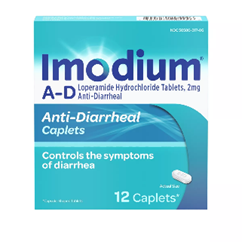 Rehydration Children and older people are particularly vulnerable to dehydration. For all cases of diarrhea, rehydration is vital. People can replace fluids by simply drinking more of them. In severe cases, however, a person may need intravenous fluids. Oral rehydration solution or salts (ORS) refers to water that contains salt and glucose. The small intestine absorbs the solution to replace the water and electrolytes lost in the stool. Zinc supplementation may also reduce the severity and duration of diarrhea in children.
Rehydration Children and older people are particularly vulnerable to dehydration. For all cases of diarrhea, rehydration is vital. People can replace fluids by simply drinking more of them. In severe cases, however, a person may need intravenous fluids. Oral rehydration solution or salts (ORS) refers to water that contains salt and glucose. The small intestine absorbs the solution to replace the water and electrolytes lost in the stool. Zinc supplementation may also reduce the severity and duration of diarrhea in children. Anti-diarrheal Medication Over-the-counter anti-diarrheal medications are also available. These include loperamide (Imodium) and bismuth subsalicylate (Pepto-Bismol). Imodium is an antimotility drug that reduces stool passage. Pepto-Bismol reduces diarrheal stool output in adults and children. It can also prevent traveler’s diarrhea. Doctors generally do not recommend using over-the-counter medicines for people who have bloody stools or fever—signs of infection with bacteria or parasites. There is some concern that anti-diarrheal medications could prolong bacterial infection by reducing the removal of pathogens through stools.
Anti-diarrheal Medication Over-the-counter anti-diarrheal medications are also available. These include loperamide (Imodium) and bismuth subsalicylate (Pepto-Bismol). Imodium is an antimotility drug that reduces stool passage. Pepto-Bismol reduces diarrheal stool output in adults and children. It can also prevent traveler’s diarrhea. Doctors generally do not recommend using over-the-counter medicines for people who have bloody stools or fever—signs of infection with bacteria or parasites. There is some concern that anti-diarrheal medications could prolong bacterial infection by reducing the removal of pathogens through stools.
- Over-the-counter medicines to treat acute diarrhea in adults can be dangerous for infants, toddlers, and young children. Talk to a doctor before giving your child over-the-counter medicine.
- Antibiotics Antibiotics can only treat diarrhea due to bacterial infections. If you are taking a certain medication that could be causing diarrhea, switching to another medicine might help. Always talk to your doctor before switching medications.
- Diet the following diet tips may help with diarrhea:
- Sipping on clear liquids, such as electrolyte drinks (containing sodium potassium and calcium), water, or fruit juice without added sugar
- After each loose stool, replacing lost fluids with at least 1 cup of liquid
- Doing most of the drinking between, not during, meals
- Consuming high potassium foods and liquids, such as diluted fruit juices, potatoes without the skin, and bananas
- Consuming high sodium foods and liquids, such as broths, soups, sports drinks, and salted crackers
- Eating foods high in soluble fiber, such as banana, oatmeal, and rice, as these help thicken the stool
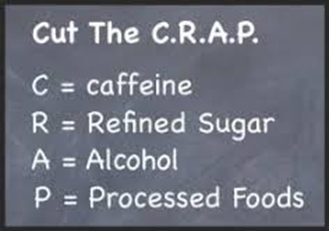 Limiting foods that may make diarrhea worse, such as:
Limiting foods that may make diarrhea worse, such as:
- alcoholic beverages
- drinks and foods containing caffeine
- dairy products such as milk, cheese, and ice cream
- fatty and greasy foods
- drinks and foods containing fructose
- fruits such as apples, peaches, and pears
- spicy foods
- diet drinks and sugarless gum and candies containing sweeteners such as sorbitol, mannitol, and xylitol
- magnesium
As a traditionally trained gastroenterologist this is what I did for years, but most of it was to no avail. My patients continued to come in hurting and in pain.
Complications of Diarrhea
Two potentially serious complications of diarrhea are dehydration (in cases of severe and frequent diarrhea) and malabsorption (in cases of chronic diarrhea). Both of which can be life-threatening if untreated. Dehydration is particularly dangerous in children, older adults and those with weakened immune systems.
Diarrhea can also indicate a wide range of underlying chronic conditions. Diagnosis and treatment can help prevent further problems.
Tips for Preventing Diarrhea
You can prevent certain types of diarrhea, such as those caused by infections, traveler’s diarrhea and foodborne illnesses.
- Infections - You can reduce your chances of getting or spreading infections that can cause diarrhea by washing your hands thoroughly with soap and warm water for 15 to 30 seconds.
- after using the bathroom
- after changing diapers
- before and after handling or preparing food
- Travelers’ diarrhea - To reduce the chances of getting travelers’ diarrhea when traveling to developing countries, avoid:
- drinking tap water
- using tap water to make ice, prepare foods or drinks, or brush your teeth
- drinking juice or milk or eating milk products that have not been pasteurized (heated to kill harmful microbes—viruses, bacteria, and parasites)
- eating food from street vendors
- eating meat, fish, or shellfish that is raw, undercooked, or not served hot
- eating raw vegetables and most raw fruits
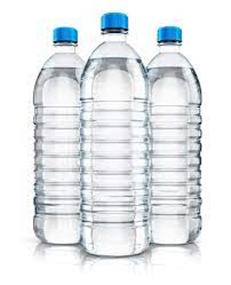 You can drink bottled water, soft drinks, and hot drinks such as coffee or tea made with boiling water. If you are worried about travelers’ diarrhea, talk with your doctor before traveling. Doctors may recommend taking antibiotics before and during a trip to help prevent travelers’ diarrhea. Early treatment with antibiotics can shorten a case of travelers’ diarrhea.
You can drink bottled water, soft drinks, and hot drinks such as coffee or tea made with boiling water. If you are worried about travelers’ diarrhea, talk with your doctor before traveling. Doctors may recommend taking antibiotics before and during a trip to help prevent travelers’ diarrhea. Early treatment with antibiotics can shorten a case of travelers’ diarrhea.
- Foodborne illnesses - You can prevent foodborne illnesses that cause diarrhea by properly storing, cooking, cleaning, and handling foods.
What Traditional Medicine is Not Telling You About Diarrhea
The information I am about to share with you was not taught to me during any of my medical training. What medical school, internship, internal medicine residency, and my Gastroenterology fellowship taught me was how to diagnose symptoms, prescribe medicines and do amazing colonoscopies and upper endoscopies. What it didn’t teach was the true reason why people are having symptoms to begin with. And although diarrhea should be taken very seriously, the idea that it can only be controlled with over-the-counter medicines, antibiotics or diet changes is disconcerting.
All the items listed above under the causes of diarrhea are true, but the two causes that do not get addressed by traditional medicine is the lack of digestive enzymes being produced in the stomach and the lack of good healthy bacteria throughout the small and large intestine.
There are two main reasons we are not producing enough digestive enzymes.
1. Age - As we age our enzyme production declines. We aren’t making all those great enzymes anymore to help us break down our food. This is why we start seeing patients in our office in their 40’s, 50’s and 60’s suddenly having issues with food. Patients will tell me all the time, they have never had a problem with food and now reflux, heartburn, diarrhea out of the blue. To me, this is no longer a mystery.
2. Diet - If we do not eat a nutritious well-balanced diet, we are not giving the body what it needs to produce a healthy number of digestive enzymes. I think we can all agree the Standard American Diet (SAD) leaves a lot to be desired. This is why we are seeing younger and younger patients in our office with the same digestive issues their parents and grandparents are experiencing. This is a generation of kids that have grown up on fast food, processed foods, fancy coffees, and energy drinks.
Taking both issues into consideration, if we don’t produce enough enzymes in our stomach when we eat, our food sits in our stomach too long putrefying and moving on in chunks instead of moving on as a liquid. Many of my patients tell me they can see their food coming out in their stool. This is a clear indication that they are not breaking down their food well in the stomach. Remember, your GI tract is one long hollow tube from start to finish. If it doesn’t go well in the stomach, it’s probably not going to go well coming out the other end. Not only can patients suffer from diarrhea or constipation, but this also means you’re not benefiting from what you are eating – this is where the malabsorption comes in. More on this later.
The next idea to discuss is bacteria in the gut. There are some traditional medicine doctors that promote probiotics when a patient is suffering from diarrhea – but unfortunately, it is still not the standard of care when it should be. And the ones that do recommend probiotics, usually recommend Align (I do not agree with this, but more on that later). One of the main things that can happen when you don’t have the right balance of good bacteria in the gut is diarrhea and it’s such an easy fix. There are so many reasons why our gut can lack good healthy bacteria.
- Diet8 - The variety of microorganisms in your gut microbiome requires a variety of plant fibers to thrive. Different organisms prefer different whole foods. In turn, they produce byproducts that nourish your gut and lower the pH inside, which favors the more beneficial microbes. On the other hand, a diet high in sugar and saturated fats tends to favor the less helpful types of microorganisms. Processed foods not only lack fiber and micronutrients (vitamins and minerals) but also tend to come with many additives and preservatives, which can be harmful to your microbiome.
 Chemicals / Antibiotics / Medicines - Chemicals that may poison your microbiome include common everyday substances like alcohol, tobacco smoke and pollutants. Antibiotics can wipe out not only the bad bacteria, but also good bacteria. Additionally, pesticides, similar to antibiotics, can wipe out the good bacteria along with the bad. Other medications, like acid blockers (which many of our patients take regularly), can affect your microbiome by changing the pH inside. Your gut microbiome can usually recover from temporary chemical exposure, like a short course of a certain medication that you need to get well, ie an antibiotic for an infection. But chronic exposure to certain medicines can affect the microbiome composition. If you take certain medications or use substances like alcohol or nicotine frequently, it may prevent certain microbes from thriving.
Chemicals / Antibiotics / Medicines - Chemicals that may poison your microbiome include common everyday substances like alcohol, tobacco smoke and pollutants. Antibiotics can wipe out not only the bad bacteria, but also good bacteria. Additionally, pesticides, similar to antibiotics, can wipe out the good bacteria along with the bad. Other medications, like acid blockers (which many of our patients take regularly), can affect your microbiome by changing the pH inside. Your gut microbiome can usually recover from temporary chemical exposure, like a short course of a certain medication that you need to get well, ie an antibiotic for an infection. But chronic exposure to certain medicines can affect the microbiome composition. If you take certain medications or use substances like alcohol or nicotine frequently, it may prevent certain microbes from thriving.- Diversity - In a healthy gut microbiome, different types of microorganisms support each other. Consider how different plants in a garden cross-pollinate or nourish the soil for each other. For example, some types feed other types by breaking down compounds, or their byproducts change the acidity of the “soil.” On the other hand, a microbiome that doesn’t support a healthy variety of microorganisms is more vulnerable to being overrun by the invasive types. Without healthy competition, these “weeds” and “pests” take over the habitat and deplete the resources that the other types need to survive.
- Motility - Your motility is the regular movement of your bowels. This is how your “crop” of microorganisms turns over. After traveling through your colon, where they help break down undigested compounds into nutrients you can absorb, many come out with your poop. How long this takes affects your microbiome. The movement of food and waste through your GI tract helps to distribute different microbes into different places along the way. If it’s too fast, they don’t have time to settle or to do their jobs before clearing out. But if it’s too slow, they can overeat and overgrow, spreading beyond their territory.
- Stress / Anxiety / Depression9 - There are many studies that show how stress and depression can alter the harmony of gut bacteria. This can cause a decline in helpful bacteria and an increase in harmful ones. These mental health issues can reshape the gut bacteria’s composition through stress hormones, inflammation, and autonomic alterations. In turn, the gut bacteria release metabolites, toxins, and neurohormones.
Taking all of these items into consideration, it’s no wonder why our gut bacteria is suffering. A majority of people today are not eating the best diet, are exposed to tons of medications (especially antibiotics), are not having regularly bowel movements and are suffering from so much stress, anxiety and depression.
Traditional medicine will tell you that to fix your diarrhea you need to drink fluids, take an over-the-counter medicine, or try changing what you are eating. Unfortunately, that isn’t always going to do the trick and then what? What happens for most people is they are stuck on medicine for the rest of their life. Well, not on my watch. The medicine is just a band-aid, the fluids and food changes, although important, are not fixing the problems. If I’ve learned anything about getting people well, it’s we must get to the root cause and fix it if we want true lifelong health.
Why It’s Important to Digest Your Food Properly
When you eat food, it goes into your stomach as a solid. Obviously, we chew it, but we don’t chew it into a liquid. Your body cannot use food in a solid form, it must be broken down into a liquid for your body to benefit from it. This means when you eat, your body is supposed to go to work for you – making enzymes and acid. There is a different enzyme produced to digest all different types of foods:
- Amylase & Diastase - break down starch into sugars / glucose.
- Protease- breaks down protein into amino acids.
- Lipase- breaks down fat into fatty acids.
- Invertase - breaks sugar down into glucose and fructose.
- Lactase - breaks down sugar found in dairy products.
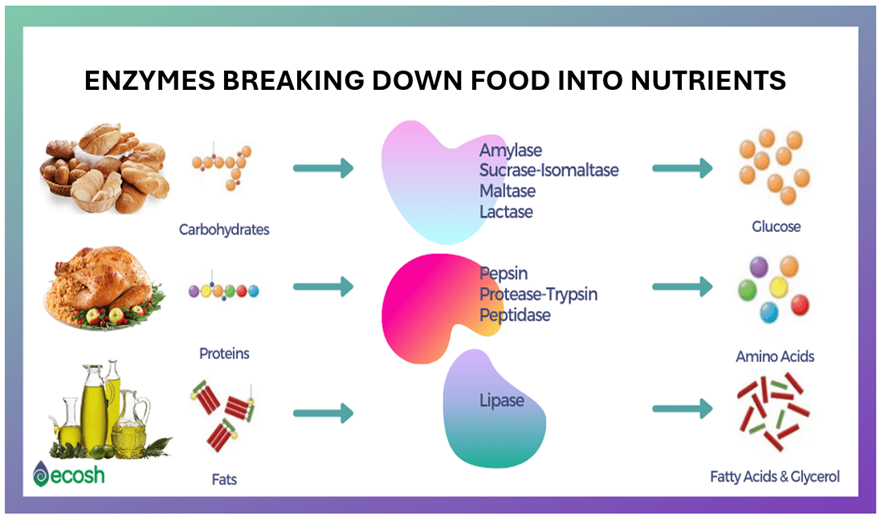
The acid that gets produced in the stomach helps to digest protein in addition to killing off germs, viruses or bugs found on our food. Our food is not sterile, so the acid helps to protect us from all the items we consume that the body shouldn’t be exposed to. Producing the appropriate amount of enzymes and acid is a crucial step in the digestive process. For your food to be absorbed and assimilated into the body the food must be broken down properly. If you are lacking enzymes or acid your food will sit around too long in the stomach causing lots of digestive issues but in addition to that you will not be able to benefit from the food itself.
Imagine this – even if you are eating the healthiest diet in the world, if your body is not breaking it down properly, you are not benefiting from what you are eating. This can cause not only digestive issues like gas, bloating, diarrhea, constipation and acid reflux but it can also cause you to be tired, have low energy, have a foggy brain, etc. Anyone out there experiencing any of these symptoms?
In addition, if you are not getting vitamins and minerals from the food you are eating, the body is very smart. It knows you need vitamins and minerals to function and so guess what it does, it starts to rob from itself. And the first place it goes is the bone and the muscle because that is where we have the most vitamins and minerals stored up.
Digesting your food properly is the first step to not only eliminating digestive issues but getting you off over the counter and prescription meds while at the same time giving you your life back.
Long-Term Effects of Over-the-Counter Meds
 Many of our patients who are suffering from diarrhea have been on over-the-counter medicines on and off for years. They share with me that the only way they can have a normal bowel movement is to just take the medicine every day and they’ve been doing that for decades and it works fine. Unfortunately, this is not FINE.
Many of our patients who are suffering from diarrhea have been on over-the-counter medicines on and off for years. They share with me that the only way they can have a normal bowel movement is to just take the medicine every day and they’ve been doing that for decades and it works fine. Unfortunately, this is not FINE.
The other issue that arises with frequent usage of anti-diarrheal or strong prescription medicines for diarrhea is that they can cause constipation. Now the patient is on the cycle of diarrhea med and then constipation med, week after week, month after month. This can be very taxing on the body.
Over-the-counter medicines are not fixing the issue, they are a band-aid for it. And in the end, they are truly doing your body a disservice. In addition, there are many known side effects from anti-diarrhea medicines which can include heart rhythm problems (chest pain or discomfort, fast, slow, or irregular heartbeat, fainting, or trouble breathing). And even though it’s supposed to help with GI issues, it may increase your risk for stomach or bowel problems (bloating, blood in the stools, constipation, fever, loss of appetite, nausea or vomiting, or stomach pain). These medicines may also cause serious allergic reactions, including anaphylaxis, which can be life-threatening (rash, itching, hoarseness, trouble breathing, trouble swallowing, or any swelling of your hands, face, or mouth). Finally, it may cause some people to become dizzy, drowsy, or tired. I don’t know about you, but I want you to feel better, not worse.
A Different Approach to Diarrhea
In 2007, I approached my wife and Office Manager Tina and told her how frustrated I was with medicine. I was running all the tests, doing all the procedures, and prescribing all the medicines and could not figure out why my patients were still hurting. That frustration led us on a two-year journey to learn what my medical degree did not teach me about the body and how it works, in addition to what is happening in the medical industry, pharmaceutical industry and food industry to cause so many health problems in our society.
After we learned what we did, we felt obligated to share this with our patients and we’ve been doing so since 2010. Tina was so passionate about what we learned, she went back to school and received her Certificate in Holistic Nutrition so she could help me deliver this message to as many people as we possibly could. Since we started on this journey, we have helped tens of thousands of patients and wellness clients eliminate their symptoms naturally, helping their bodies work again like they were meant to work. And the best part of it all, is it’s not as hard as you may think to turn it all around, no matter how long you’ve been suffering or how old you are. If you are willing to put in the time, effort and invest in yourself, you can have your life back too.
For diarrhea it’s as simple as incorporating the following:
 A Microbiome Stool Test GI disruptors and bacteria imbalance are the number one cause of diarrhea. If your gut is overrun by bad bacteria, viruses, and pathogens, it’s difficult for the body to be well. This simple stool test will assess the status of pathogens, viruses, parasites, and bacteria that may be contributing to acute and / or chronic digestive and medical symptoms.
A Microbiome Stool Test GI disruptors and bacteria imbalance are the number one cause of diarrhea. If your gut is overrun by bad bacteria, viruses, and pathogens, it’s difficult for the body to be well. This simple stool test will assess the status of pathogens, viruses, parasites, and bacteria that may be contributing to acute and / or chronic digestive and medical symptoms.
- Many gastroenterologists order stool studies but they go through traditional labs such as Sonora or Lab Corp. This test is more comprehensive going deeper into the body and returning many more results.
- With this testing we will have a clear picture of the GI Disruptors affecting your health, allowing us to replenish your gut with healthy bacteria to not only get your body working properly but eliminate symptoms and pain.
 A Cellular Level Food Sensitivity Test Anyone struggling with diarrhea absolutely must get this test done. There could be foods that you are eating on a regular basis that your body does not agree with and are causing you problems. Instead of elimination diets and the guessing game, this test will identify the foods that are causing you problems so we can get you off those foods temporarily, allowing the gut to heal. Once this is accomplished, food sensitivities are eliminated, you can reintroduce these foods back into your diet.
A Cellular Level Food Sensitivity Test Anyone struggling with diarrhea absolutely must get this test done. There could be foods that you are eating on a regular basis that your body does not agree with and are causing you problems. Instead of elimination diets and the guessing game, this test will identify the foods that are causing you problems so we can get you off those foods temporarily, allowing the gut to heal. Once this is accomplished, food sensitivities are eliminated, you can reintroduce these foods back into your diet.
- Traditional allergists run skin and blood tests to determine food allergies. This food sensitivity test goes a level deeper to study the cellular level of the body, the difference between a food allergy and a food sensitivity
- Digestive Enzymes Digestive enzymes help break down our food into smaller, more absorbable units. Your body cannot absorb the food you eat as is, it can only absorb nutrients. Therefore, for your body to benefit from what you eat, proteins need to be broken down into amino acids; fats need to be broken down into fatty acids and cholesterol; and carbohydrates need to be broken down into simple sugars. You rely on digestive enzymes to break down what you eat.
 If you are enzyme deficient, you are not absorbing nutrients from your food, even if the food you are eating is very healthy
If you are enzyme deficient, you are not absorbing nutrients from your food, even if the food you are eating is very healthy- In addition to not being able to absorb nutrients from what you are eating, enzyme deficiency can also cause many digestive symptoms such as acid reflux, heartburn, indigestion, nausea and vomiting, constipation, and diarrhea.
- At birth we are given a certain potential for manufacturing enzymes in our body, creating an enzyme “reserve.” However, if we do not continually replenish that reserve through proper nutrition, it runs out. With every decade of life our enzyme production depletes by 13%.
- Our digestive enzymes are called Everyday Enzymes™. They are what I like to call medical grade enzymes (high potency and no fillers). This is important when taking a supplement, especially a digestive enzyme. It is meant to be taken with meals to help you digest your food better. Remember, your GI tract is one long hallow tube from start to finish. If it doesn’t go well in the stomach, it’s probably not going to go well coming out the other end. Digesting your food well is the first step in having good, regular bowel movements.
- Probiotics Your digestive system is home to trillions of microorganisms, creating an ecosystem called the “gut flora.” Probiotics are good bacteria, which are needed to create a balance throughout the body. The body has both good and bad bacteria. Without a healthy balance of good bacteria, symptoms may occur such as diarrhea, constipation, gas, and bloating.
 On a daily basis, we unconsciously consume various microbes that could potentially cause sickness. In a body that has plenty of “good bacteria,” these microbes will pass with no negative effects.
On a daily basis, we unconsciously consume various microbes that could potentially cause sickness. In a body that has plenty of “good bacteria,” these microbes will pass with no negative effects. - However, if bad microbes are ingested in a body with an imbalanced gut flora, these microbes will cause sickness. The “bad bacteria” that are constantly in our system, are kept under control by the “good bacteria.”
- Our probiotics are called Pleasant Probiotics™. These are also medical grade (high potency and no fillers). It contains six strains of bacteria and a lot of each strain; this can’t be said for most probiotics on the market. Our product also has a prebiotic which is food for bacteria. Probiotics are meant to be taken on an empty stomach. We dose ours one in the morning and one at night. Taking a healthy probiotic daily is one of the simplest things you can do, not only for your digestive health but your overall health.
- More than half of our immune system is in the gut wall, so it is vital to keep that part of our body healthy. Many illnesses can be linked back to abnormal gut flora.
- Many patients ask me if they can just eat yogurt for the good bacteria. The problem with yogurt is it’s loaded with sugar and bad bacteria loves sugar. The bad bacteria are going to eat up the good bacteria before it even has a chance to settle in the gut. Plus, you’d have to eat over 20 yogurts per day just to get the same amount of bacteria you’d get from taking one capsule.
- Align is the most popular probiotic on the market – mainly because it was one of the first probiotics to come out and those doctors that do promote probiotics usually recommend it because it’s the only one they know. The problem with Align is it has only one strain of bacteria (one of the cheapest and least effective strains I might add). It also contains a filler, which is what supplement companies use to fill the capsule, so they don’t have to put the good stuff. If you are going to take a probiotic, invest in one that is going to make a huge impact, not just a little one.
-
 Alkaline Water The “alkaline” in alkaline water refers to its pH level. A pH level is a number that measures how acidic or alkaline a substance is on an approximate scale of 0 to 14. For example, something with a pH of 1 would be very acidic, and something with a pH of 13 would be very alkaline. Regular drinking water generally has a neutral pH of 7. Alkaline water typically has a pH of 8 or 9. Alkaline water absorbs better into the body aiding in issues people have with dehydration (one of the number one issues with diarrhea). In addition to drinking more water when having diarrhea, drinking alkaline water can also help the cause.
Alkaline Water The “alkaline” in alkaline water refers to its pH level. A pH level is a number that measures how acidic or alkaline a substance is on an approximate scale of 0 to 14. For example, something with a pH of 1 would be very acidic, and something with a pH of 13 would be very alkaline. Regular drinking water generally has a neutral pH of 7. Alkaline water typically has a pH of 8 or 9. Alkaline water absorbs better into the body aiding in issues people have with dehydration (one of the number one issues with diarrhea). In addition to drinking more water when having diarrhea, drinking alkaline water can also help the cause.
- Just like a fish tank or a swimming pool, our body needs to maintain a certain pH to stay healthy. If we get really sick, our pH is monitored because if it drops below a certain amount we can die. When we are healthy, we don’t pay much attention to our pH, but that doesn’t mean it’s not important. On the pH scale, our body is slightly alkaline, so anything you can do to drink and eat more alkaline makes it easier for your body to maintain its alkalinity and in turn work to keep you healthy.
- Your body is a healing vessel, it wants you to be well. Sometimes we just need to help it out a little. Drinking alkaline water is one simple thing you can do to help your body out. It’s especially helpful for people suffering from diarrhea because it absorbs better in the body.
Act Now – 3 Options to “Move” in the Right Direction
Depending on your level of commitment and interest in turning around your diarrhea issues, there are three options to consider:
- Good if you want to start slow and are not sure if this is for you, at least order our Everyday Enzymes™ and Pleasant Probiotics™. The investment is minimal and it’s not hard to incorporate these two supplements into your daily routine to see if they can help. I do encourage you to try this regimen for at least 3 months before you decide it’s not working for you. Doing something for only a few days or even a month is not going to make a huge difference in your body, especially if you’ve been suffering from diarrhea for a long time.

- Better if you are ready to make a more serious commitment to turning around your diarrhea and have some money to invest in yourself, consider ordering our Diarrhea Starter Kit. It includes a three-month supply of our Everyday Enzymes™, and Pleasant Probiotics™, along with an Alkaline Water Pitcher so you can start benefiting from alkaline water right away. In addition, it also comes with the Microbiome Stool Test and the Cellular Level Food Sensitivity Test I explained above. These tests will give us a clear picture as to what disruptors and foods are causing the problems so you can stop guessing and get some answers. By purchasing the kit, you get all these items at a discounted rate so it’s much better than buying them individually.

- Best if you have money to invest in yourself, are suffering from other medical issues aside from just diarrhea and you’re sick and tired of feeling sick and tired consider going all in on our Digestive Revolution™ Ultimate Plan. This is my 4-Step Proprietary System which is an outcomes and scientific based system that starts at the cellular level. The system delivers 4 main outcomes:
- Eliminates digestive issues such as gas, bloating, constipation, diarrhea, and acid reflux.
- Removes pain and inflammation from the body.
- Reduces the need for prescription and over-the-counter medications.
- Increases energy, enhances sleep, and the ability to get to your healthy base weight.

No matter what you decide to do, do something! You get sick and remain sick by accident – you get healthy on purpose!
References
[1] DuPont HL. Acute infectious diarrhea in immunocompetent adults. The New England Journal of Medicine. 2014;370(16):1532–1540.
[2] Industry Arc - https://www.industryarc.com/Report/17439/anti-diarrheal-drugs-market.html
[3] CDC - https://www.cdc.gov/healthywater/pdf/global/programs/globaldiarrhea508c.pdf
[4] NIH - https://www.niddk.nih.gov/health-information/digestive-diseases/diarrhea/symptoms-causes
[5] Medical News Today - https://www.medicalnewstoday.com/articles/158634#symptoms
[6] Bristol Stool Chart - https://www.continence.org.au/bristol-stool-chart
[7] GI Society - https://badgut.org/information-centre/health-nutrition/diarrhea-and-diet/#:~:text=Diarrhea%20is%20classified%20into%20four,and%20produce%20an%20osmotic%20effect.
[7] GI Society - https://badgut.org/information-centre/health-nutrition/diarrhea-and-diet/#:~:text=Diarrhea%20is%20classified%20into%20four,and%20produce%20an%20osmotic%20effect.
[8] Cleveland Clinic - https://my.clevelandclinic.org/health/body/25201-gut-microbiome
[9] NIH -https://www.ncbi.nlm.nih.gov/pmc/articles/PMC7213601/#:~:text=Additionally%2C%20stress%20and%20depression%20can,species%20may%20encourage%20dysregulated%20eating.
These statements have not been evaluated by the Food and Drug Administration.
These products are not intended to diagnose, treat, cure, or prevent any disease.

Liz Cruz, MD
- Award-winning, board-certified gastroenterologist
- Sought-after leader in solving complex digestive health conditions
- 30+ years of dedicated patient service
- Best-selling author, podcaster and international speaker
Dr. Liz Cruz was named Top Gastroenterologist in 2019. She is a Diplomat of the American Board of Internal Medicine and the American Board of Gastroenterology. Dr. Cruz is a member of the American Gastroenterological Association, American College of Gastroenterology, and the American Society for Gastrointestinal Endoscopy. In 2014, she received the Quilly Award from the National Academy of Best-Selling Authors® for her Best-Selling Book “Answering the Call".
